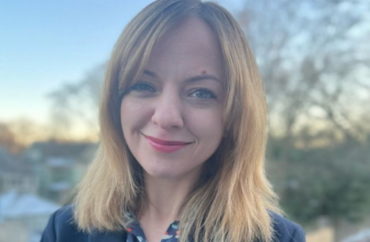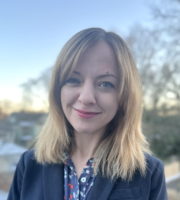
At one summer academic program, free speech was the rule
DALLAS — For five days as a student at the University of Austin, I participated in an institution that practiced what it preached.*
The new school, which is currently seeking accreditation, gathered scholars and just over 100 young people in late June for two sessions of a non-credit program encompassing seminars, lectures and group activities, called “Forbidden Courses.”
As fellow student Declan Hurley and I reported in The College Fix earlier this month, there were no trigger warnings, microaggressions or designated safe spaces. No one faced repercussions for holding controversial ideas.
The program drew articulate, erudite and talented students and academics who were diverse in frame of mind.
Katie Roiphe, an author and the director of the Cultural Reporting and Criticism Program at the Arthur L. Carter Journalism Institute at New York University, taught a one-week seminar called “Sexual Politics” to about a dozen of us. Roiphe, a feminist writer, critically analyzed #MeToo politics a few years ago and campus date rape discourse in the 1990s.
On a typical day in our class, one student, a rising freshman at Hillsdale College who had been homeschooled through twelfth grade, alluded to the Bible, paraphrased conservative writer Louise Perry‘s “The Case Against the Sexual Revolution,” and argued towards a legal ban on prostitution.
Across the room, a young man from Austria vigorously defended a contrary libertarian position.
Discussions extended beyond the classroom to lunch, where the professor usually joined us. One day we talked about how to write professionally; on another afternoon, a student and the professor debated the ethics of diversity, equity and inclusion.
Other men and women in our class included a Ukrainian international student at the University of Pennsylvania with whom I later discussed George Orwell’s “1984” (“It is just like the Soviet Union,” she said); a college freshman who was starting a free speech society; and a recent graduate of Thomas Aquinas College who expressed skepticism that a mere free speech commitment could unite a community of truth-seekers.
I am sympathetic to that view, also articulated by a friendly Catholic critic, as reported by The College Fix back in December 2021. Paul O’Reilly, then-incoming president of Thomas Aquinas College, told The Washington Examiner he believed the university’s ideals of truth and free inquiry might ultimately conflict.
“If you believe truth can be known,” O’Reilly had said, “then once you’ve acquired the truth to the extent that you can do that … I don’t think you could say that there continues to be open inquiry.”
The entire experience at UATX left me exhilarated but with lingering reservations.
On the one hand, I take the point of the Catholics at Thomas Aquinas College that the most cohesive academic communities require a shared understanding of truth – even a shared faith – above a mere commitment to truth’s pursuit.
On the other hand, a secular university should help us grapple with life in a pluralistic country and world, in which there may always be competing and contradictory notions of what is good and true.
Such an education should also challenge the limitations, prejudices and circumstances that impede our quest for knowledge and wisdom. We can’t avoid getting many things wrong when we think them through on our own or just with people like ourselves.
Pano Kanelos, the University of Austin president, told us that he and his colleagues believe in having “strong convictions, lightly held.”
That is a prudent approach for subjects for which we have incomplete information.
The program successfully put together passionate proponents of visions both old and new, religious and secular, in dialogue and debate. The range of perspectives seemed more representative of the country than the contemporary academy.
I don’t recall comparable intellectual diversity from my college years studying literature and humanities (not journalism) at New York University.
In my experience as an undergraduate at the Gallatin School at NYU, religious belief was mocked, if it was spoken of at all. I couldn’t have imagined anyone illustrating a point with a Bible story.
We had intellectual conversations, but they usually began and ended with the fashionable thinkers of the day and their followers: the Marxists, the Nietzscheans, the psychoanalysts, the existentialists and postmodern gurus like Michel Foucault and Judith Butler.
Those thinkers represented a range of views, but there was a lot of overlap, and my smartest NYU classmates seemed to regard them as more or less authoritative.
Even though many of these modern and postmodern writers taught that truth could not be known, some students treated their works with the deference a Catholic seminarian might give to the 13th-century philosopher Saint Thomas Aquinas.
In contrast, University of Austin students drew on excitingly divergent, even contradictory traditions from a longer span of intellectual history. There were many kinds of disciples but no shared sacred texts.
And yet, our observance of the university’s principles – “freedom of inquiry, freedom of conscience, and civil discourse” — allowed us to listen to and learn from each other.
Aquinas taught that wisdom comes to us from many sources. The University of Austin embraces that principle in teaching and learning.
I’m grateful to have been given a small chance to participate.
Disclaimer: Maggie Kelly applied for “Forbidden Courses’ and attended through a full scholarship, as did all the students accepted into the program.
MORE: Bill would mandate free speech training on public college campuses nationwide
Like The College Fix on Facebook / Follow us on Twitter






Please join the conversation about our stories on Facebook, Twitter, Instagram, Reddit, MeWe, Rumble, Gab, Minds and Gettr.